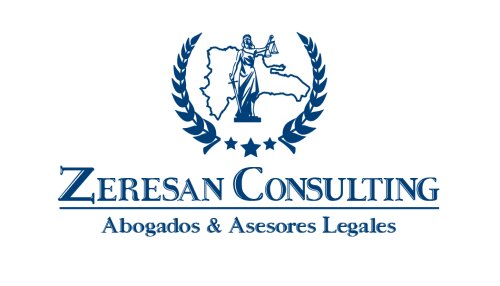Best Collaborative Law Lawyers in Santo Domingo Este
Share your needs with us, get contacted by law firms.
Free. Takes 2 min.
Free Guide to Hiring a Family Lawyer
List of the best lawyers in Santo Domingo Este, Dominican Republic
About Collaborative Law in Santo Domingo Este, Dominican Republic
Collaborative Law is an approach to dispute resolution where parties work together amicably to resolve conflicts without going to court. In Santo Domingo Este, Dominican Republic, this approach is gaining traction among individuals and families looking for less adversarial means to settle disputes. It is particularly useful in family law matters such as divorces, child custody, and property division, promoting open communication and cooperation between parties with the aid of trained legal professionals.
Why You May Need a Lawyer
Engaging a lawyer specializing in Collaborative Law can be beneficial in several situations. If you are facing a divorce and wish to maintain a peaceful relationship, particularly for the sake of children involved, a collaborative approach might be ideal. It is also suitable for business disputes where maintaining a working relationship is crucial. Lawyers trained in Collaborative Law facilitate negotiations and provide legal support to ensure that both parties reach a mutually beneficial agreement while being fully informed of their legal rights and obligations.
Local Laws Overview
The legal framework for Collaborative Law in Santo Domingo Este aligns with the broader principles of amicable dispute resolutions seen in other jurisdictions. Key legal aspects involve the voluntary participation of the parties and their agreement to resolve issues outside the traditional court system. Confidentiality is a cornerstone, where all discussions and negotiations in this process are kept private. Legal documents such as a participation agreement and the final settlement are essential components, legally binding once signed by the parties involved.
Frequently Asked Questions
What is Collaborative Law?
Collaborative Law is a legal process in which parties in a dispute work with their lawyers and, sometimes, other professionals to avoid litigation and reach a settlement amicably.
How does Collaborative Law differ from traditional litigation?
Unlike traditional litigation, Collaborative Law focuses on negotiation and cooperation outside of court, aiming for a win-win resolution with minimal conflict.
Is Collaborative Law suitable for all types of legal disputes?
While it is commonly used in family law, it can also be useful in business disputes, although it may not be suitable for cases involving domestic violence or significant power imbalances.
Are the agreements reached in Collaborative Law legally binding?
Yes, once a settlement is reached and documented, it can become a legally binding contract or court order, depending on the situation.
Who are the professionals involved in Collaborative Law?
The process may involve attorneys, financial advisors, mental health professionals, and child specialists to support various aspects of the dispute.
What happens if we cannot reach an agreement?
If an agreement is not reached, the collaborative lawyers must withdraw, and the parties may pursue litigation with different legal representation.
How long does the Collaborative Law process usually take?
The duration varies depending on the complexity of the issues, but it is generally faster than traditional litigation.
Is the process confidential?
Yes, confidentiality is a key principle, ensuring that all discussions and negotiations remain private.
Can I save money by choosing the Collaborative Law approach?
Potentially, yes. Without court fees and prolonged litigation, clients often find this approach more cost-effective.
How do I find a Collaborative Law lawyer?
Look for lawyers who are specifically trained and have experience in Collaborative Law processes, often available through legal directories and associations.
Additional Resources
Consider reaching out to the Dominican Bar Association for referrals to Collaborative Law experts. The Ministry of Justice and local family law organizations can also provide valuable information and resources. Workshops and seminars on Collaborative Law might be available through local universities or community centers.
Next Steps
If you need legal assistance in Collaborative Law, start by consulting with a lawyer who specializes in this field. Prepare to discuss your situation openly and be willing to work collaboratively towards a resolution. Gather all pertinent documents and list your goals and concerns. Finally, consider attending introductory workshops or seeking consultations to gain a better understanding of the process and your options.
Lawzana helps you find the best lawyers and law firms in Santo Domingo Este through a curated and pre-screened list of qualified legal professionals. Our platform offers rankings and detailed profiles of attorneys and law firms, allowing you to compare based on practice areas, including Collaborative Law, experience, and client feedback.
Each profile includes a description of the firm's areas of practice, client reviews, team members and partners, year of establishment, spoken languages, office locations, contact information, social media presence, and any published articles or resources. Most firms on our platform speak English and are experienced in both local and international legal matters.
Get a quote from top-rated law firms in Santo Domingo Este, Dominican Republic — quickly, securely, and without unnecessary hassle.
Disclaimer:
The information provided on this page is for general informational purposes only and does not constitute legal advice. While we strive to ensure the accuracy and relevance of the content, legal information may change over time, and interpretations of the law can vary. You should always consult with a qualified legal professional for advice specific to your situation.
We disclaim all liability for actions taken or not taken based on the content of this page. If you believe any information is incorrect or outdated, please contact us, and we will review and update it where appropriate.








